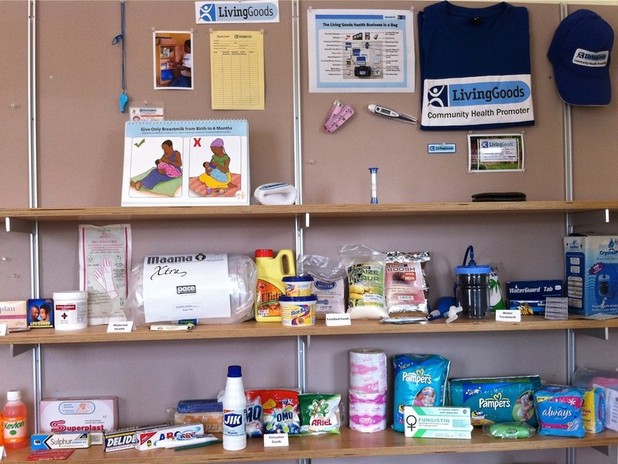April 03, 2012
Jess Vechakul and her IDEO.org team kick off a new project in Kenya designing a scalable business model selling clean water alongside hygiene and nutrition products.
We, at IDEO.org, are so excited to be working again with Unilever and Water and Sanitation for the Urban Poor (WSUP)! We've conducted several previous projects with Unilever and WSUP – including Ghanasan, where we designed the business, toilet, brand, and scale-up strategy for Clean Team, an in-home sanitation service that launched in Kumasi, Ghana. As part of this new project, our work will be reaching a whole new level with the Global Alliance for Improved Nutrition (GAIN) joining Unilever and WSUP as our partners.
The Project
How might we design a scalable business to sell water alongside hygiene and nutrition products?
For many urban dwellers who do not have piped water at their homes, buying water from vendors is a daily necessity. There are also franchises and entrepreneurs selling a mix of consumer products door-to-door or at market and street stalls. The goal for this project is to create a service selling water along with health products. The location for our field research will be Nairobi, where WSUP has already helped entrepreneurs establish water kiosks.
By combining safe water sales with hygiene products (such as soap) and nutrition products (like food and vitamins), we hope to create synergies that will appeal to many customers and provide multiple health benefits. Safe water paired with easy access to soap and other hygiene products could significantly reduce diarrheal disease. Decreasing diarrheal illness and providing access to fortified foods and vitamins could be even more effective at combating malnutrition than implementing either strategy alone.
What's great about this project is that it addresses several critical health issues simultaneously while also creating opportunities for local entrepreneurs to increase their income. In order to maximize social impact, these business models must also be scalable and replicable so that the business can start local and eventually spread globally.
Our Research So Far
The IDEO.org team has spent the last week conducting secondary research on innovative business models and organizations supporting these local entrepreneurs and kiosks. Our first expert interview was with Living Goods, the “Avon of pro-poor products.” Living Goods recruits and trains Community Health Promoters (CHP) who go door-to-door, selling health products and educating their neighbors about malaria, diarrhea, and other common health ailments. Living Goods is a great social enterprise model for us to study because the company provides its CHPs with quality health products at a lower wholesale price so that the CHPs can earn a modest income while selling products that help their communities maintain good health. Before departing San Francisco at the end of this week, we’ll be designing prototypes inspired by the most promising business models that we've identified as part of our research. When we hit the ground in Nairobi, we’ll be equipped with research methods and prototypes to test out different services, from home deliveries to mobile salesmen to hybrid models that blend existing approaches. The IDEO.org team tackling this challenge is Robin Bigio, Liz Ogbu, Emily Friedberg, and me, Jess Vechakul.









